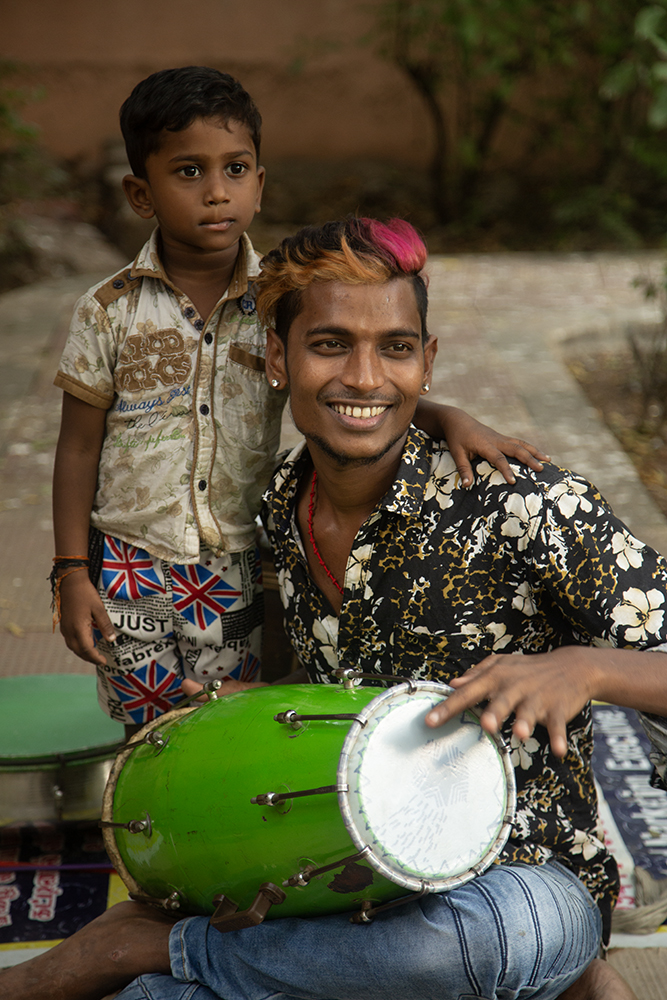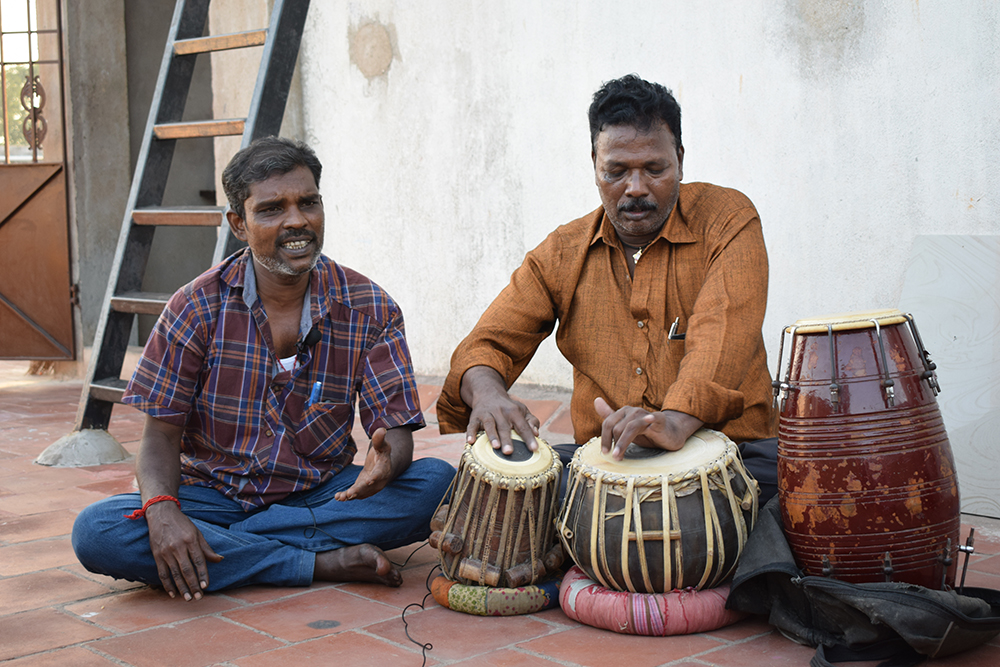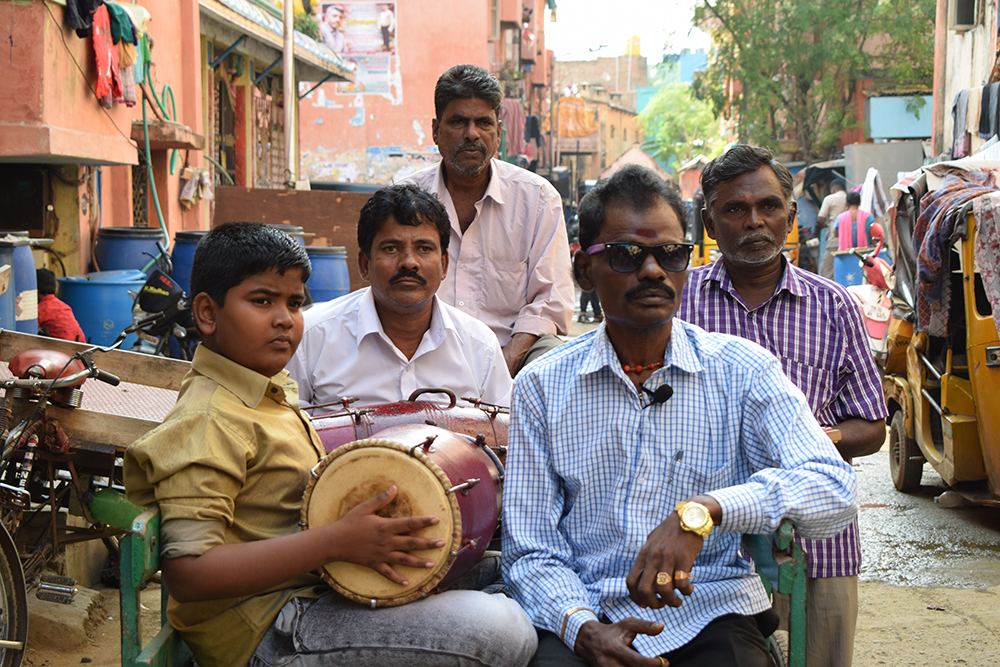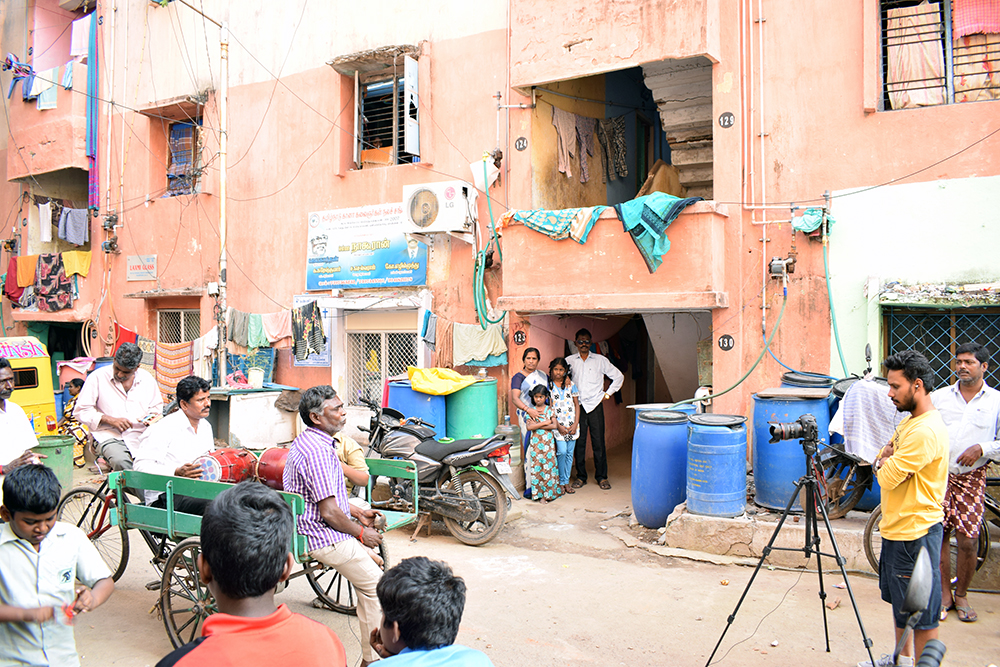Bhagath Singh A




Grant Period: one year and six months
Bhagath Singh is a research scholar based in Pondicherry. He has earlier worked in the areas of visual ethnographies, ecological conservation, documentation of indigenous knowledge systems and implementation of developmental projects. He has published essays and articles in Tamil and English in leading newspapers, magazines and journals and has currently submitted his PhD thesis in anthropology at the Pondicherry University. This grant supports Bhagath Singh to research into the evolution and development of the Gaana music culture in Chennai.
Gaana (from Gaanam in Tamil and Gaana in Hindi) simply means song. It is said to have emerged and spread in Tamilnadu due to the influence of Qawwali music, since the use of the voice and applause in Gaana is similar to that of Qawwali. The original context of the Gaana songs has been death rituals and funerals. It used to be mainly sung by the dalit communities of Paraiyars and Pattinavars, on the day of the death and on the eighth and sixteenth days hence. The singers are invited to perform and they sing through the night composing songs about the deceased and the place where the person lived.
In due course, Gaana has also become a form that has embodied a wide range of subaltern voices of urban Chennai. Today, it is a popular form of musical expression among the marginalised people of urban Chennai. Generally unwritten, sung in the local dialect mixed with borrowed or bastardised words from other languages, and unbound by grammatical conventions, Gaana are songs of the working class people of Chennai living in the city’s slums, often sung to the accompaniment of the parai household utensils, matchboxes and so on. The hard labour of the day, the tragedies of their lives, stories of migration, relationships with people, tobacco, drink, cinema, love and sex are usually the themes of Gaana. Its entry into Tamil cinema has also contributed to its growing popularity as an urban folk form. Some of the leading Tamil lyricists and music directors like Ilayaraja, Deva and others have been hugely influenced by Gaana.
Despite the popularity of Gaana in Tamil cinema, its innate musicality, its influence on urban youth and its powerful political voice, Gaana has always been despised as a form that is salacious. In the area of research too, Gaana has not received much attention and there is very little material available in this domain. The little that is currently available only came about after the emergence of research interest in subaltern histories and forms. Currently existing research done by scholars like V Arasu, M D Muthukumaraswamy, K Kabilan and V Ramakrishnan, focus on history, content and the socio-political aspects of Gaana songs.
This grant enables Bhagath to build further on the available studies into Gaana. Through this grant, he seeks to investigate the evolution of Gaana, its content, form and its social context. He will extensively document various kinds of Gaana songs available in song books and CDs. Bhagath will undertake many trips to slums where the performers live and record songs in their performance context. He will also conduct detailed interviews with the performers in order to understand the spaces where they are performed and people who practice them. The content of the songs will be analysed and the material generated from the field will be studied against the larger context of society, politics and culture of Chennai in particular, and Tamilnadu in general.
The decision to make this grant is embedded in IFA’s mandate to support work from marginalised or relatively unexplored areas. IFA supported a project akin to this one on the urban phenomenon of the hip-hop dancers in Delhi who come from similar marginalised spaces a few years ago that resulted in a film. The outcome of this project will be a series of essays / articles in little magazines in Tamil. The research will eventually lead to a book. The essays along with video and still documentation will be the deliverables from this project.
This grant is made possible with support from Titan Company Limited.
